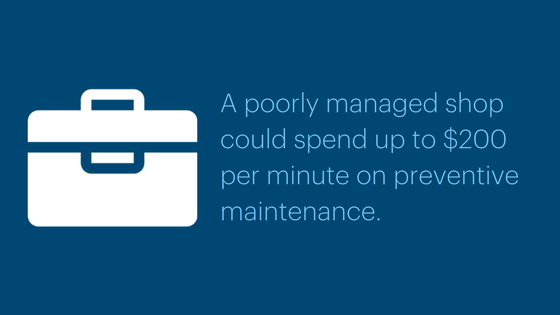This year I had the great opportunity to attend the Vehicle Maintenance Management Conference. For those less acquainted, VMMC is a yearly conference that takes place in Seattle every March. While it is mostly specific to fleets in the Pacific Northwest, it is highly regarded as a place where fleets of all sizes and types can come together and learn from each other.

As a Content Marketing Manager, I’m always looking for new ways to help fleet managers solve their most pressing problems with content. Whether I’m working with our marketing team to develop white papers, case studies or videos, the goal is singular—to help fleet management professionals solve complex problems. Sitting in on sessions at VMMC provided a wealth of education and insight into the very real challenges fleet managers face daily.
With that in mind, I wanted to take a few minutes to talk about some of my takeaways from VMMC this year. In particular, I wanted to talk about three big challenges fleets are facing.
Challenge Number 1: Fleets are under increasing pressure to prove their value
“I have spent my entire career elevating the perception of fleet managers. The general perception of fleet managers across the board is that our job is mindless and easy.”
Bill DeRousse, Managing consultant for Police Fleet Institute
On the first day of the conference, I attended a session called “Fleet Management 101.” The presentation was given by trusted fleet management veteran Bill DeRousse. The presentation was centered around educating key decision makers within a fleet organization about the effectiveness of fleet processes. In other words, DeRousse was attempting to address what felt like the elephant in the room: “How do I prove my fleet’s value?”
The answer to this question boiled down to metrics. In other words, it’s impossible for any fleet to prove their worth if they aren’t tracking the right things and with the right tools.
In fact, metrics can make or break any fleet. He posited that the big problem with many of today’s fleets is that they are often working with bad data—or at the very least—an inaccurate record of their data. For instance, a poorly tracked and managed maintenance program could be catastrophic to a fleet’s bottom line.

In short, proving your fleet’s worth boils down to your ability to prove with hard data that you are increasing your organization’s bottom line through efficiency.
Challenge Number 2: Fleet management is undergoing a technology revolution.
Automotive technology advances are readying to make a big impact on the fleet management industry. With rapidly-evolving technologies like autonomous driving, fleet vehicle electrification or predictability-based vehicle functions, change is coming—and fleet managers know it.
Much of the conversation was around how fleets will need to adapt to these new technological advances facing the automotive industry. The harsh reality is that there are complex problems that fleet managers will have to solve in the future.
How will autonomous driving change staffing? What will be the new role of the driver? How will maintenance change? Will tomorrow’s maintenance technicians need to understand data science and connectivity in order to troubleshoot vehicle malfunctions in the field?
Challenge Number 3: Attracting and retaining maintenance talent is a top priority.
The most common concern among all fleet managers at the conference was around attracting and retaining qualified maintenance talent. The overall consensus is that there is a pending staffing crisis that is impacting fleets all over the Northwest that is influenced by two major factors:
1. The “graying” of the maintenance technician workforce - Many fleet managers at the conference expressed serious concern about the aging out of their maintenance technicians. These are mechanics who have proven their worth over decades but are no longer able to do the heavy lifting they once could. While it’s possible to assign older technicians to lighter duty maintenance tasks, fleets still need to find skilled, experienced technicians to replace them.
2. Enticing high school students into the maintenance trade is difficult - When it comes down to turning a wrench or writing code, most millennials are gravitating towards tech-based higher education tracks. In fact, vocational-based courses like welding and auto shop classes in high schools all over the country are in sharp decline. A 2014 report by the California Department of Education revealed a 20% decline in vocational teachers throughout the state. This is largely due to the fact that most high school students are gravitating towards Science Technology Engineering Math (STEM) career tracks. The result is that fleets are being forced to embrace innovative technology—not just to keep up with the changing industry—but to attract potential new technicians.
Your challenges are complex, but we can help
Obviously these are complex problems that will require organizational shifts for many fleets. The good news is that we can help you and your organization move towards embracing innovation. With Fleetio Manage, you can push your fleet toward better asset management and improve efficiency across your entire organization.



